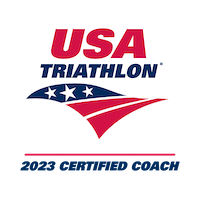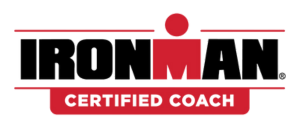When I started triathlon, I thought recovery weeks were quite counterproductive. After all, the more I was training, the fitter I was getting. Once I started to get more into structured training, I quickly found out that it is not the training alone, making me a fitter triathlete.
What makes you a fitter triathlete is a combination of having enough stress on your muscles and a sufficient period of recovery to let your body adapt to the new (higher) training load.
Adding a recovery week after every 3-4 weeks of training should become an essential part of your training plan. With it, you can avoid overtraining, burnout, or even losing complete interest in triathlon. Lowering your training’s volume and intensity are the first two obvious elements, but you should also consider sleep, nutrition, and mental stress.
Disclaimer: The Triathlon Tips of My Tri World are reader-supported. When you buy through links, I may earn an affiliate commission.
HOW TO FIT THE RECOVERY WEEK IN YOUR TRAINING PLAN
The key to effective training is to strike a balance between these two determiners of high-performance—stress and recovery—so that fatigue is created and then reduced.
Joe Friel, Training: Stress, Fatigue, Recovery, Adaptation
A training plan is really individual. Every triathlete has different goals and hence a different plan to achieve it. What is consistent between all plans is a form of periodization. Most plans I have seen have a progressive training load over a three weeks period followed by a week of recovery. That’s not the norm; it is simply a really good starting point. You might need a longer or shorter period of recovery. After some trial and error, you will find what really works for you.
HOW TO CUT BACK THE TRAINING
A recovery week is still an active week. You can influence two factors in your training: the volume (how many hours you are training) and the intensity (how hard you are training). During this particular week, you will reduce both.
Following the advice from Joe Friel (blog: recovery week design), I would:
- reduce the volume: cut the number of workouts and also their duration. I’d personally go from 9-10 hours of training a week to 5-6 hours a week, which works well for me.
- reduce the intensity: focus only on Z1 (easy) training for the first days
WHAT ABOUT SLEEP
Sleep is often cut back to give you more time for training. Less sleep leads to higher stress and hence lowers your capacity to recover.
The recovery week can be ideal to start working on your sleeping habits. At least you don’t have the excuse that you need to train! Add a nap, sleep earlier, or longer – it is totally up to you. In any case, implement those changes incrementally. Ideally, extend those above the recovery week.
Still not convinced of the effect of sleep on performance? Have a look at the study from Cheri Mah (“The Effects of Sleep Extension on the Athletic Performance of Collegiate Basketball Player“). By increasing the athletes’ sleep to reach a min of 10 hours a day, they increased their shot accuracy by more than 9%.
EATING
You might feel hungrier during the rest day, and the temptation to junk food might increase (speaking from experience… ). Try to keep a clean eating habit during this recovery week. You don’t want to start your next training block with a couple of kilos more in your body.
I personally prefer a simple approach to eating, and I can totally relate to the one of Mark Bubbs in his book PEAK (Amazon affiliate link):
I have a Food First approach to performance nutrition. An athlete’s diet should be made up primarily of whole, unprocessed foods such as quality meats (beef, fish, seafood, chicken, and the like), plentiful vegetables (cruciferous, leafy, and everything in between), fresh fruit (all colors of the rainbow), complex carbohydrates, and healthy fats from grass-fed meats and natural oils. Diet can become very nuanced and complex, or it can be very simple. Build your diet around “real” food and limit your intake of processed foods.
Marc Bubbs
However, if you would like to go more in-depth into nutrition during recovery, I recommend reading chapter 7.
MENTAL STRESS
Mental stress is another factor that might limit your capacity to recover.
You can’t obviously take a week off from work every month, but there are definitely aspects of your life you can influence, especially during this recovery week. A couple of examples:
- spend time with family and friends
- get a massage
- listen to music
- read a book
- relax in a hammock
As you can see, recovery is highly individual. As mentioned, the key point is to cut back your total stress level (reduce training, increase sleep, focus on healthy nutrition, and a low mental stress level). Now that you know what you should focus on, it is time to implement some changes. You might not get it right all the time, but as the saying goes: practice makes perfect 😉


